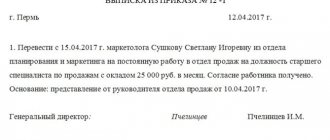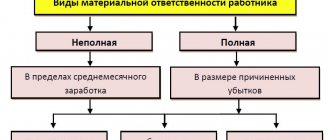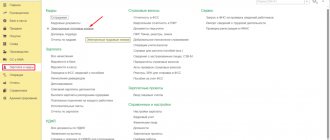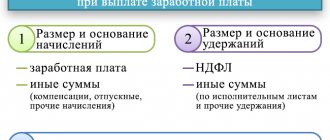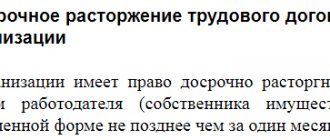Procedure for introducing and paying for downtime
Rules for using services and information
users of the electronic services system “Onlineinspection.rf”
The rules for the use of services and information by users (hereinafter referred to as the Rules) of the system of electronic services “Onlineinspektsiya.rf” (hereinafter referred to as the System) apply to all electronic services of the System, without exception, accessed through sections and pages of the Internet portal https://onlineinspektsiya. RF (hereinafter referred to as the Portal). These Rules govern the behavior of all, without exception, registered users in the System and unregistered visitors to the Portal.
1. Terms and concepts used in these Rules
1.1 These Rules use the following terms and concepts:
System – system of electronic services “Onlineinspektsiya.rf”.
Services are basic and additional tools offered to the User for interaction with authorities.
The portal is an information resource created for the purpose of interaction of citizens with the System, located on the Internet at the address: https://onlineinspektsiya.rf.
The portal administration is officials of the Federal Service for Labor and Employment and representatives of the contractor under the state contract for the provision of technical support of the Portal, who carry out the operational management of the Portal.
User – a person registered on the Portal who is invited to use the services provided by the Portal.
Moderator is a representative of the portal Administration who processes user messages.
Moderation is the process of processing and analyzing the compliance of the User’s message with the provisions of these Rules for the use of services and information by users of the online services system “Onlineinspektsiya.rf” and the User Agreement.
2. General rules
2.1. To access the publication of messages on the Portal (discussions, comments, questions and use of any other means of interaction between the User and the System), each Portal User must read and agree with these Rules.
2.2. After reading the texts of the Rules of Use and the User Agreement, confirming agreement with them on the registration page or sending a message, each User, by these actions, enters into an agreement with the Portal Administration to regulate their relationship.
2.3. The Portal Administration has the right to carry out moderation through representatives of the Portal Administration - moderators.
2.4. These Rules may be amended by amending the relevant order of the Federal Service for Labor and Employment.
3. User registration
3.1. The Portal has a user registration system. Only registered users have the opportunity to interact interactively with the System services.
3.2. To register on the Portal, the User specifies a valid email address - notifications about the current status of published messages (appeals) will be sent to it, and selects a conditional User name (“nickname”).
3.3. When registering a User, the System requests a password for the login being registered. This password must be known only to the User and must not be disclosed to third parties. The password used can be changed by the User in a special section of the Portal – User Profile.
3.4. When registering a User, the System initiates the authorization process by sending an SMS message with an activation code to the User’s phone number specified during registration. The received password must be entered in a special field in the window that opens. Only after entering the password will the account be activated.
3.5. For users who have an account on the Public Services Portal (https://www.gosuslugi.ru/), the opportunity to authorize using the login and password for this account is provided. If registration is carried out using this method, verification via SMS message is excluded.
4. Publication of appeals
4.1. Each registered User can publish an appeal.
4.2. Appeals are published in accordance with the proposed classifier of problem categories.
4.3. To create a request, you must fill out the request form. In the application form, the User must indicate his real data.
4.4. The user must fill in the following fields about himself as an applicant:
— the applicant’s residential address;
— last name, first name, patronymic (if any) of the applicant;
— the applicant’s mobile phone number (if there is no mobile phone required when registering in the System, the applicant has the right to submit an application directly to the email address of the territorial body of Rostrud. The list of territorial bodies of Rostrud is posted on the unified information portal of the Federal Service for Labor and Employment on the Internet "(https://rostrud.ru/). If the User has not previously registered on the Portal, an activation code will be sent to this specified phone number, which must be entered in a special field in the window that appears in order to activate the User’s account and contact him ;
— email address to which notifications about the progress of solving the problem will be sent.
The Portal Administration ensures non-disclosure to third parties of all user data entered during the registration process, except for cases stipulated by the User Agreement.
4.5. The user must fill in the following fields about the place of work:
- region, city and exact actual address of the organization of which he is an employee;
— information about the organization: name, legal form, legal address, information about the director;
— information about your position and period of work;
— information about third parties whose mention is required to fully describe the problem.
4.6. The user needs to fill in the following fields about his problem:
— explanations of the current situation;
— photographic materials.
Information entered in the “Explanation of the current situation” field becomes public and should be of a general nature. In this field it is prohibited to mention the personal data of third parties. If the applicant violates this paragraph of the rules, the User himself is responsible for the publication of information.
Photographic materials are classified information by default and can be published publicly at the discretion of the User.
4.7. Before sending the application, the User agrees with these Rules for the use of services and information by System users and accepts the agreement on the processing of personal data. In case of disagreement with these conditions, each User has the right to refuse to use the resource and use other types of communication offered on the official resources of the department.
4.8. The Portal uses post-moderation of messages. Messages are published immediately after they are posted by users and, if they violate these Rules, they are deleted, or the moderator sends a letter to the User with a request to eliminate the violation.
4.9. Reasons for refusal to publish a message or proposal to make adjustments:
- ignoring spelling rules and profanity, the message is not written in the state language of the Russian Federation or contains a large number of spelling and syntax errors, is written in capital letters, contains profanity, including in a veiled form;
- the lack of a logical connection between the sentences in the address, which does not allow one to understand the general meaning of the described case;
— extremism, discrimination (in all forms: racial, ethnic, age, gender, religious, social, etc.);
- commercial purposes and advertising - if, in the opinion of the moderator, the published information is directly or indirectly aimed at making a profit;
- insufficient description or unfounded accusations - the moderator reserves the right to reject a case if the information specified in it does not allow us to draw a conclusion about an existing offense;
— cases in which there is no specific indication of the problem and there are questions of a rhetorical nature are not moderated;
— cases that do not correspond to the category chosen by the User are not moderated;
— messages that duplicate previously published messages are not moderated (the text of the message completely repeats the text of the previous message, that is, it does not contain new information).
4.10. The user can familiarize himself with the response to the published appeal in his personal account, having previously completed authorization on the Portal.
Thank you for your attention and understanding!
Easy to use. How will it affect the employee’s salary?
— Karina, what is recognized as downtime according to the law?
— In accordance with Article 34 of the Labor Code (LC), downtime is a temporary (for a period of no more than six months) absence of work due to a production or economic nature (failure of equipment, mechanisms, lack of raw materials, materials, electricity, etc.).
— How is downtime paid?
— Remuneration according to Art. 71 TC occurs as follows:
- ˜ in case of downtime through no fault of the employee, wages cannot be lower than two-thirds of the tariff rate (salary) established for him;
- ˜ downtime due to the employee’s fault is not subject to payment.
— Is it permissible to transfer an employee to another workplace during a simple period of downtime?
— The employer has the right to transfer the employee to a job not stipulated by the employment contract, as well as to work for another employer. A temporary transfer due to downtime must be made taking into account the profession, specialty, qualification, position of the employee for the entire period of downtime with the same employer and for a period of up to one month to another employer, but in the same area.
— How is an employee paid in case of temporary transfer during downtime?
- In accordance with Art. 34 of the Labor Code in this case, remuneration is made according to the work performed. At the same time, during a temporary transfer to a lower-paid job, employees who meet production standards or transferred to time-based work are retained the average earnings for their previous job, and employees who do not meet production standards are paid for the work performed, but not lower than their tariff rate .
Vacation
— Can an employer, in the absence of work, temporarily transfer workers of all categories to another job?
— Temporary transfer of an employee in case of downtime to a job that is contraindicated for health reasons is not allowed.
Also in accordance with clause 33 of the Regulations on the procedure for distribution, redistribution, assignment to work, subsequent assignment to work of graduates who have received postgraduate, higher, secondary specialized or vocational education, approved by Resolution of the Council of Ministers of June 22, 2011 No. 821, The transfer of young specialists to a job that is not related to the acquired specialty (specialty area, specialization) and assigned qualifications until the end of the period of compulsory work specified in the certificate of assignment is prohibited, except in cases provided for by law.
In accordance with Art. Art. 262 and 274 of the Labor Code prohibit the transfer to certain types of work (for example, with harmful and dangerous working conditions) of women and persons under 18 years of age.
— How is the translation documented?
— Temporary transfer of an employee in case of downtime is formalized by order of the employer, which the employee gets to know under signature. It indicates the documents that served as the basis for issuing the order, for example, a memorandum.
Also, in case of downtime, the employer may offer the employee to take a leave of absence. It must be borne in mind that the so-called “leave at one’s own expense” is granted exclusively upon the written application of the employee, for family, household and other valid reasons (for example, work on a dissertation). Thus, the initiative to provide this leave comes from the employee. In accordance with Art. 190 of the Labor Code, this leave without pay can be granted during a calendar year in a total amount of no more than 30 calendar days, unless otherwise provided by a collective agreement, agreement, or employer. The decision to grant such leave, as well as the assessment of the validity of the reasons, is made by the employer.
Maxim SERGEENKO
Simple - we design it correctly
According to Part 1 of Art. 34 of the Labor Code of the Republic of Belarus , downtime is a temporary (for a period of no more than 6 months) absence of work due to a production or economic nature (failure of equipment, mechanisms, lack of raw materials, materials, electricity, etc.).
In addition to the above reasons, downtime may arise as a result of repairs to premises, forced relocation from the occupied space, violation of contractual obligations by the counterparty, resulting in suspension of work, deprivation of a special permit (license), decision of a government body to suspend the activities of an enterprise, structural unit, equipment, etc.
Part two, paragraph 8 of the Instruction “On the procedure for applying lists of production, work, professions, positions and indicators that give the right to an old-age pension for work with special working conditions”, approved by Resolution of the Ministry of Labor and Social Protection of the Republic of Belarus dated July 14, 2005 No. 86 ) defines downtime as a suspension of work at a workplace, site, workshop, or organization due to the lack of raw materials, materials, tools, electrical and thermal energy, equipment breakdown, which arose both through the fault of the employee and without his fault.
The employee needs to know:
— the duration of downtime can be from 5 minutes. up to 6 months.
- during downtime, they do not pay bonuses, allowances for length of service, for complexity and tension, for work in hazardous working conditions.
— downtime does not apply to those employees who are on labor and social leave.
— if sick leave is opened during downtime, it will be paid in the amount of at least 2/3 of the tariff rate (salary). If sick leave is open before downtime, payment is calculated taking into account the average daily earnings for the previous 6 months.
Procedure for registration of downtime
Downtime is an extraordinary event that temporarily violates the agreement of the parties to an employment contract. Under different circumstances of downtime, the obligation to report the fact of downtime may fall on both the employer and the employee.
The employee is obliged to take measures to immediately eliminate the causes and conditions that impede the normal performance of work (accident, downtime, etc.) and immediately report the incident to the employer (clause 7 of article 53 of the Labor Code).
To avoid disputes about the start time of downtime, the procedure for remunerating workers, each fact of downtime must be reported to the employer in writing. This requirement can be enshrined in the organization’s collective agreement.
Failure to inform the employer immediately (that is, immediately after discovery) about circumstances that impede the normal performance of work will mean the employee is at fault and does not apply the guarantees provided for in Article 71 of the Labor Code.
Labor legislation does not contain a list of documents that record the fact of downtime. Usually this is an act of downtime, which indicates the reason and duration of the downtime, the guilty party of the downtime, the positions (professions) of the workers who suspended work, etc.
The order to suspend work due to downtime should include the following information:
- start and end date of downtime.
In this case, a specific end date for the downtime may not be indicated if at the time the order is issued it is not possible to determine the duration of the downtime;
If the order declaring downtime specified a specific end date, then the effect of this order is terminated automatically. If the order declaring downtime was issued without specifying a specific end date, since it was impossible to determine the duration of the downtime, then the employer needs to issue an order to end the downtime. Such an order should indicate:
- the date from which work will resume;
- positions (professions), surnames, first names, patronymics of employees or names of structural divisions of the organization that begin work after downtime.
It is mandatory to familiarize the employees of the relevant structural units with the order to end the downtime, .
Such actions will help avoid controversial situations when the organization’s employees do not show up for work and claim that the employer did not notify them of the end of the downtime.
2. the reason for the downtime;
- positions (professions), surnames, first names, patronymics of employees or names of structural divisions of the organization in respect of which downtime is declared;
- the amount of payment for downtime with reference to the legal norms of the Labor Code;
In case of downtime not due to the fault of the employee, the wage cannot be lower than 2/3 of the tariff rate (salary) established for him (part one of Article 71 of the Labor Code), and downtime due to the fault of the employee is not subject to payment (part three of Article 71 of the Labor Code). The employee’s guilt can be expressed in non-compliance due to inattention or in deliberate failure to comply with established requirements when carrying out the relevant work (regulations, drawings, standards, rules, technical conditions, etc.).
- the need for the presence at the workplace of workers for whom downtime is declared, or permission not to go to work, indicating positions (professions), surnames and initials.
The Labor Code does not require the mandatory presence of workers at work during downtime. But since the downtime period refers to working time (part one of Article 110 of the Labor Code), employees do not have the right to use it at their discretion and leave their jobs. The absence of employees from work without the employer's permission during downtime can be classified as absenteeism. However, the employer, in the order declaring downtime, may allow not to go to work. In order to eliminate possible disputes and litigation, it is advisable to indicate in the order whether employees are required to attend workplaces or not;
The order must be signed by an authorized official of the employer (the head of the organization or another authorized person). If the order is signed by an unauthorized official, the declaration of downtime may be considered illegal.
Employees for whom downtime has been declared must be familiarized with the order to suspend work due to downtime by signing the relevant notice, etc. If the employee refuses to become familiar, a corresponding act is drawn up.
During downtime, the employer can employ the released workers in other jobs. He has the right:
- during downtime, transfer workers to another job or to another employer;
- grant early leave of absence;
- establish part-time working hours;
- provide social leave with the consent of the employee.
In accordance with Article 30 of the Labor Code, the employee’s consent to a temporary transfer due to downtime is not required. Temporary transfer of an employee during downtime may be repeated more than once.
It is prohibited to transfer an employee to a job that is contraindicated for him due to health reasons.
When an employee is temporarily transferred to another job due to downtime, wages are paid according to the work performed. At the same time, during a temporary transfer to a lower-paid job, employees who meet production standards or transferred to time-paid work are retained the average earnings for their previous job, and employees who do not meet production standards are paid according to the work performed, but not lower than their tariff rate.
It should also be borne in mind that transferring an employee to another job due to downtime is not the responsibility of the employer.
The employer has the right to transfer the employee to a job not stipulated by the employment contract (in another profession, specialty, qualification, position) in case of production necessity to prevent downtime (Article 33 of the Labor Code).
In this case, a temporary transfer due to production needs is carried out without the employee’s consent for a period of up to 1 month, and to replace an absent employee, such a transfer cannot exceed 1 month during a calendar year (from January 1 to December 31). By agreement of the parties, the period for such a transfer may be increased (part three of Article 33 of the Labor Code).
Simple. Work on mistakes
Article 72.2 of the Labor Code of the Russian Federation establishes that downtime is a temporary suspension of work for reasons of an economic, technological, technical or organizational nature. The employer is obliged to provide employees with work stipulated by the employment contract, and if this obligation is not fulfilled, the legislator imposes liability on the employer in the form of payment for downtime (Articles 22, 56 of the Labor Code of the Russian Federation).
Downtime caused by the employer is paid in the amount of at least 2/3 of the employee’s average salary (Article 157 of the Labor Code of the Russian Federation).
Downtime due to reasons beyond the control of the employer and employee is paid in an amount of at least 2/3 of the tariff rate, salary (official salary), calculated in proportion to downtime.
Downtime caused by the employee is not paid.
The Labor Code of the Russian Federation regulates downtime issues very sparingly, and disputes arise frequently. We have compiled a “rating” of the most common mistakes made by employers.
Whose fault are we standing for?
It is extremely important to correctly determine the type of downtime. Labor legislation distinguishes simple:
due to the fault of the employer; for reasons beyond the control of the employer and employee; due to the fault of the employee.
Payment depends on the type of downtime.
It is very difficult in practice to establish whether the employer is at fault or whether the downtime arose for reasons beyond the control of either party to the employment contract. But if the type of downtime is determined incorrectly, as well as the amount of payment, then the employer will most likely have to pay the missing amounts and compensate for moral damages (in the event of a legal dispute), as well as pay a fine (if there was an appeal to the labor inspectorate).
It is considered that downtime occurred due to the fault of the employer if it was caused by his culpable actions (inaction). Moreover, it does not matter whether there was intent or mismanagement. If, for example, the deterioration in the economic condition of the organization is indicated as the reason for downtime, then the employer is clearly at fault. Likewise, the courts believe that downtime due to a decrease in demand for manufactured products, the purchase of raw materials at inflated prices, or a decrease in production volumes is considered downtime due to the fault of the employer.
What, then, are considered reasons that do not depend on the will of the parties?
These are, for example, extreme weather conditions, such as smog. Thus, according to the Recommendations for organizing work and rest regimes in conditions of extreme temperatures and smoke (presented in the information of the Ministry of Health and Social Development of Russia dated 08/06/10), it is necessary to reduce the time spent at workplaces at air temperatures above permissible values. Moreover, it is specially stipulated that in the event of a reduction in the duration of daily work (shift), payment of workers for the time for which working hours are reduced can be made in accordance with Part 2 of Article 157 of the Labor Code of the Russian Federation as downtime for reasons beyond the control of the employer and employee, in an amount of at least 2/3 of the tariff rate (salary, official salary), calculated in proportion to downtime.
Also, according to the recommendations of Rostrud, downtime due to the fault of an employee is considered downtime due to the breakdown of the machine (letter of Rostrud dated 05.12.11 No. 1276-6-1).
Lack of necessary documents
The Labor Code of the Russian Federation does not contain mandatory requirements for documentation documenting downtime. However, in any case, it is necessary to issue a downtime order, which will be the basis for accounting for expenses. Since the amount of payment for downtime depends on the reason for its occurrence, each downtime is documented, indicating the reason. So, the order must contain:
start and end date of downtime. It is not necessary to indicate a specific end date for downtime, especially since it may be unknown. By the way, the Labor Code of the Russian Federation does not set a deadline for its introduction; the reason for the downtime, its nature, the circumstances that led to the downtime; through whose fault the downtime (employer, employee or for reasons beyond the control of the parties); positions (professions), full names of employees and (or) names of structural divisions of the organization in respect of which downtime is declared; amount of payment for downtime; the need for the presence at the workplace of workers for whom downtime or permission not to go to work is declared (indicating specific full names, positions (professions), structural divisions or the organization as a whole).
By the way, it should be remembered that the order for downtime must be issued by the head of the organization or another authorized person, and employees must be familiarized with the order establishing downtime against signature (in case of refusal to familiarize, an act is drawn up).
In addition to the order, it is advisable to issue:
an official or memo from the manager responsible for organizing the relevant work; a sheet for recording downtime, which indicates the date and time of the start and end of the downtime, full name, position (profession) of the employees and the reasons for the downtime; downtime act, which indicates the reasons and duration of downtime, positions (professions) of employees, etc.
Keep in mind that if downtime occurred, but the employer did not issue an order to declare it and did not pay for downtime accordingly, this will not prevent the court or labor inspectorate from recognizing the existence of downtime and obliging employees to pay it.
Do I need to be present at the workplace?
The downtime order must indicate whether employees should be present at work.
The Labor Code of the Russian Federation does not oblige workers to be present at workplaces during downtime, but the downtime period is working time (Part 1 of Article 91 of the Labor Code of the Russian Federation), i.e. employees do not have the right to use it at their own discretion, including leaving work places.
Absence from work of even an idle employee without the permission of the employer can be regarded as absenteeism.
The employer has the right to allow employees not to come to work during the downtime period, but this must be stated in the downtime order.
Failure to notify the employment service
It is necessary to notify the employment service about downtime if it is associated with a suspension of production.
According to the explanations of Rostrud, this must be done when production is suspended as a whole, and not individual units or equipment (letter dated March 19, 2012 No. 395-6-1), and this must be done within three working days after the decision is made to suspend production (declaring downtime ) (paragraph 2 of article 25 of the Law of the Russian Federation of April 19, 1991 No. 1032-1 “On employment in the Russian Federation”).
There is no mandatory form of notification, so it can be written in free form, for example: “Due to the lack of orders for products, employees have been placed on downtime due to the fault of the employer since November 1, 2014.”
Transfer to another job without the employee’s consent
It is strictly not recommended to transfer an idle employee to another job if he does not agree to this. The reference to Part 2 of Article 72.2 of the Labor Code of the Russian Federation is inappropriate in this case, since the transfer of an employee to another position is permitted if the downtime is caused by a natural or man-made disaster, industrial accident, industrial accident, fire, flood, famine, earthquake, epidemic or epizootic and in any exceptional cases threatening the life or normal living conditions of the entire population or part of it.
If such circumstances are not identified, the transfer of the employee will be considered illegal.
Preparation of time sheets
As already mentioned, downtime is working time. Article 91 of the Labor Code of the Russian Federation establishes that working time is the time during which an employee, in accordance with the internal labor regulations and the terms of the employment contract, must perform labor duties, as well as other periods of time that, in accordance with the Labor Code of the Russian Federation, other federal laws and other regulatory legal acts of the Russian Federation relate to working time. Moreover, the employer is obliged to keep records of the time actually worked by each employee.
During downtime, the time sheet must be filled out on the basis of orders, memos, acts or sheets of downtime. In the appropriate columns, you must indicate the alphabetic or numeric code of downtime (due to the fault of the employer - “RP” or “31”), as well as the duration of unworked time (in hours, minutes).
Failure to reflect downtime or its type in the time sheet may result in the illegality of declaring downtime.
If the type of downtime is incorrectly indicated in the timesheet and, accordingly, the amount of payment for downtime is incorrectly determined, this may lead to additional payments to employees for the downtime.
Payment errors
Downtime caused by the employer is paid in the amount of at least 2/3 of the employee’s average salary (Part 1 of Article 157 of the Labor Code of the Russian Federation).
To calculate the average salary, all types of payments provided for by the remuneration system that are used by the relevant employer are taken into account, regardless of the sources of these payments. In any mode of operation, the average salary of an employee is calculated based on the salary actually accrued to him and the time he actually worked for the 12 calendar months preceding the period during which the employee retains his average salary. In this case, a calendar month is considered to be the period from the 1st to the 30th (31st) day of the corresponding month inclusive (in February - to the 28th (29th) day inclusive).
If the employer incorrectly determines the type of downtime, the court will most likely correct the error by charging additional payment for downtime.
By the way, payments in favor of employees during downtime are not compensatory and are subject to personal income tax (clause 1 of article 210, article 217 of the Tax Code of the Russian Federation).
Forced leave is a violation
Another common mistake employers make is sending people on leave without pay during downtime.
Leave without pay, as is known, is divided into those that the employer can provide to the employee, and those that he is obliged to provide, but in any case, the basis for granting such leave is the desire of the employee. Voluntary desire.
The Labor Code of the Russian Federation does not provide for sending an employee on leave without pay at the request and initiative of the employer.
What about sick leave?
Starting from January 1, 2011, Federal Law No. 255-FZ dated December 29, 2006 “On compulsory social insurance in case of temporary disability due to maternity” contains a new version of Part 7 of Article 7, according to which sick leave is paid if the employee’s illness occurs before the organization declares downtime.
Simple and shorthand. Is it possible to combine?
If an employment contract is terminated due to a reduction in headcount or staff, the employer is obliged to notify employees in writing under a personal signature at least two months before dismissal (Part 2 of Article 180 of the Labor Code of the Russian Federation). From the day of notification of dismissal until the day of termination of the employment contract, the essence of the labor legal relationship between the employee and the employer does not change; the employer is obliged to provide the employee with work according to the specified labor function, pay wages on time and in full, etc.
Downtime is a temporary measure related to certain circumstances, which does not entail either a reduction in the number of employees or the termination of employment contracts.
That is, a reduction in headcount or staff and notification of upcoming dismissal cannot be formalized as downtime.
If objective circumstances have arisen that have caused downtime, and the corresponding order has been issued, then those employees who have been warned about dismissal due to a reduction in numbers or staff may also be idle (clause 2, part 1, article 81 of the Labor Code of the Russian Federation).
However, in order for everything to be legal, it is necessary that the employee be placed on downtime not because he was subject to layoff, but due to objective reasons that led to the downtime.
End of downtime
Of course, if the order declaring downtime already indicates its end date, then the order terminates by itself.
However, if the order does not contain an end date for the downtime, then an order to end the downtime should be issued.
It must indicate the date from which work is resumed, positions and (or) professions, full name of the employee or employees and (or) names of the structural divisions of the organization that begin work after downtime.
It is necessary to familiarize the relevant employees with a personal signature, otherwise it cannot be ruled out that the employees will not show up for work, and in court they will argue that they were not notified of the end of the downtime.
IMPORTANT:
Neither the Labor Code of the Russian Federation nor any other legal act contains a list of grounds for introducing downtime. In practice, the reasons for downtime can be of an organizational nature (due to liquidation, merger, division, etc.), technological (introduction of new technologies, changes in production methods, etc.), technical (breakdowns, modernization, etc.) ...) and, of course, an economic nature (crisis, violation of contractual obligations by counterparties, etc.).
Lack of necessary documents confirming the need for downtime is a serious mistake. You should have a package of necessary documents that will confirm the legality of introducing downtime - commercial, accounting and other documents confirming the need to declare downtime.
Article 91 of the Labor Code of the Russian Federation establishes that working time is the time during which an employee, in accordance with the internal labor regulations and the terms of the employment contract, must perform labor duties, as well as other periods of time that, in accordance with the Labor Code of the Russian Federation, other federal laws and other regulatory legal acts of the Russian Federation relate to working time.
Payments in favor of employees during downtime are not compensatory and are subject to personal income tax (clause 1 of article 210, article 217 of the Tax Code of the Russian Federation).
Ksenia RAMAZANOVA, legal lawyer
How much time in advance should we notify employees about downtime?
“Human Resources Department of a Commercial Organization”, 2014, N 3
Question: We would like to change production equipment. But for this you will have to stop work for about three weeks. How long before the proposed reconstruction should we notify workers about downtime?
Answer: If, as a result of changing equipment, the terms of employment contracts are not maintained, it is necessary to notify employees of downtime at least two months in advance. If the labor functions of the workers remain the same and the working conditions do not change, you can declare downtime on the day it begins.
Rationale: The concept of downtime is defined in Art. 72.2 of the Labor Code of the Russian Federation is a temporary suspension of work for reasons of an economic, technological, technical or organizational nature. Downtime can occur due to the fault of the employee, the employer, or depend on neither one nor the other (Article 157 of the Labor Code of the Russian Federation). The same article establishes the obligation for the employee to notify the employer about the beginning of downtime caused by equipment breakdown and other reasons that make it impossible for the employee to continue to perform his job functions. But not a word is said about the employer’s notification of employees.
Since in practice downtime in most cases occurs unexpectedly, the employer notifies about this by issuing an order and familiarizing employees with it on the day the reasons causing the downtime appear. The same order defines the possibility of absence from the workplace, because as a general rule, during downtime, an employee must be at his workplace, since this time does not apply to rest time (Article 107 of the Labor Code of the Russian Federation).
As the courts point out, downtime is a temporary measure associated with the occurrence of certain circumstances at work that do not entail a reduction in the number of employees and termination of employment contracts (for example, see the Appeal Ruling of the Supreme Court of the Republic of Karelia dated January 25, 2013 in case No. 33-5/2013), therefore, employees do not need to be notified two months in advance.
Note. The Labor Code does not regulate the documentation of downtime.
However, we recommend that you still analyze the consequences of technological re-equipment of production and, if this entails a change in the essential terms of the employment contract, use the provisions of Art. 74 of the Labor Code of the Russian Federation and notify employees of upcoming changes at least two months in advance. And then issue a stay order for three weeks.
A. I. Suverneva
Journal expert
"Human Resources Department
commercial organization"
Signed for publication on February 27, 2014

